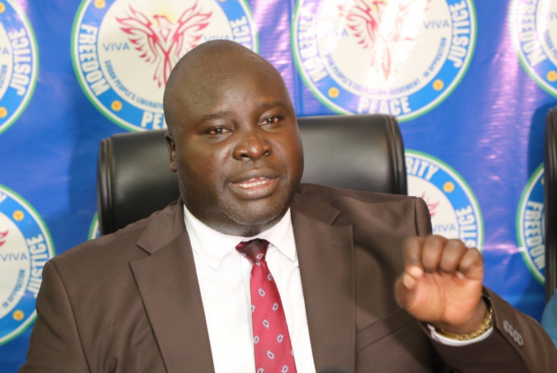By Matik Kueth
The Deputy Chairman of the Sudan People’s Liberation Movement in Opposition (SPLM-IO), Oyet Nathaniel, has condemned recent remarks made by Dr. Martin Elia Lomuro, Minister of Cabinet Affairs, on the classification of certain Nuer counties as ‘hostile’ or ‘friendly’.
Lomuro labeled Nasir, Ulang, Akobo, Nyirol, Uror, Fangak, Ayod, Rubkona, and Panyijiar as “hostile” to the government and Maiwut, Longechuk, Guit, Leer, Mayendit, Koch, and Mayom as “friendly” in a press conference held on Saturday, April 26, 2024.
In statement, Nathaniel expressed deep concern over the implications of such ethnic profiling, arguing that it reflects a broader “lack of justice accountability” in South Sudan.
“We are also disappointed to note that paragraph two of the ‘Strategic Response’ described the Nuer ethnic group as one of the largest in South Sudan, inhabiting sixteen counties, nine of which were considered by the SPLM-IG and security agents as ‘hostile’ and aligned with SPLM/SPLA-IO. We warn and strongly condemn these perpetuations of the State Policy of ethnic and tribal profiling, targeting, and cleansing,” Nathaniel stated.
He emphasized the historical backdrop of ethnic violence in the region, referencing the Final Report of the African Union Commission of Inquiry on South Sudan.
“The SPLM/SPLA-I0 is not surprised by this ethnic profiling since in December 2013, at the onset of the conflict, and as highlighted by “the Final Report of the African Union Commission of Inquiry on South Sudan. Juba was subdivided into four operational sectors, where targeted killings of Nuer people were carried out. He firmly warned against the continuation of such state-sanctioned violence,” he said.
Despite the absence of a legitimate court system in South Sudan, the SPLM-IO pledged to take proactive measures to address human rights violations.
Nathaniel announced plans to form a task force aimed at filing cases with the International Criminal Court (ICC).
“We are hereby commencing widespread consultation with the view of forming a taskforce for the purposes of filing cases of Human Rights Violations, Atrocities, War Crimes, Crimes against Peace, Crimes against Humanity and Genocides with the International Criminal Court at The Hague,” he stressed.
Regarding the relationship between the SPLM-IO and the White Army, he stated that the White Army predates the current conflict and is just like any other armed group functioning independently in South Sudan.
“Regarding the relationship between the SPLM/SPLA-I0 and the White Army, we would like to highlight that the White Army existed before the December 2013 crisis. The White Army are armed youth just like any other in South Sudan; Abushok in Baliet County, Agwelek in Fashoda area, the Murle armed youth in Greater Pibor, the armed youth in Eastern, Central, and Western Equatoria States, and the armed youth in Bahr El Ghazel (Mathiang Anyor, Gelweng, Tit-bai, Dut-ku-Beny),” he explained, underlining that the White Army is capable of independent action without direct affiliation to SPLM-IO.
However, the SPLM-IO deputy chair stressed the ongoing peace process and the significance of equal responsibility sharing in South Sudan’s governance.
He reiterated the SPLM-IO’s steadfast commitment to justice and accountability for South Sudanese citizens as tensions sprout in the country.



